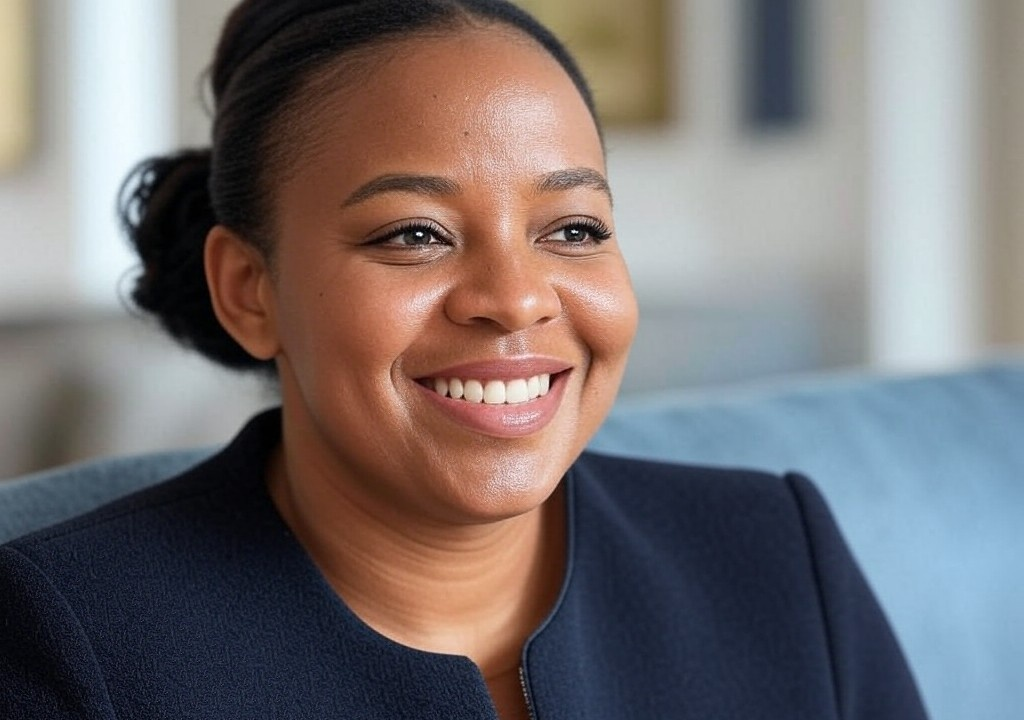“Ebony, what do you mean you flunked out?”
The words came from my father, his voice steady but heavy with quiet disbelief, the way someone might react if you told them the sky had suddenly turned green. For a man who spent his days saving hearts and his evenings perfecting the art of stoic parenting, this was as dramatic as his reactions got.
My first big failure wasn’t in love or life but in college—the very foundation that was supposed to catapult me into greatness. I had failed two classes during my second year at Howard University, and the result was devastating: academic probation.
It wasn’t that I couldn’t keep up; I’d always been a high achiever. But somewhere between keeping up appearances at campus parties, “joining” five organizations just to impress future employers, and thinking I could write a Pulitzer-worthy paper at 3 a.m., my workload overwhelmed me. I crashed, and I crashed hard. My Type A personality had steered me straight into an iceberg.
But here’s the thing about failure: it’s fertile ground for growth—messy, humbling, sweaty growth. Let me walk you through how that disaster taught me four key lessons I didn’t even know I needed.
Lesson One: Embrace the Ugly Cry and Keep Moving
When I say I cried, I mean the "ugly cry"—the real show-stopper. Picture Kerry Washington in Scandal but less dignified. I called my roommate that night like Olivia Pope calling for backup: “I can’t survive this; it’s too big; it’s ruined me.”
Spoiler alert: It didn’t ruin me. But what it did do was wake me up to the importance of allowing myself to feel the full weight of failure. Sometimes you just have to cry your eyelashes off and let the grief do its thing. Then? You wipe your face, put on some Whitney Houston, and plan your next move.
Because here’s the truth: resilience starts when denial ends. Let yourself feel all the feels, then treat that failure like a stepping stone instead of a sinkhole.
Lesson Two: Stop Performing for People Who Aren’t Watching
Let’s rewind to sophomore Ebony, who thought she could be Elle Woods, Beyoncé, and Clair Huxtable all at the same time. I was tackling 18 course hours, volunteering, and trying to curate the perfect image. But honestly? Nobody was paying that much attention.
Sometimes, we overestimate the audience in our lives. The truth? Half the “audience” isn’t even watching, and the other half is mostly rooting for you to succeed (or too busy with their own drama to care).
Coming face-to-face with failure pushed me to reevaluate who I was living for. Was I chasing people’s admiration, or was I building a life that actually felt rewarding to me? Spoiler: It wasn’t the latter.
I couldn’t do everything and be everywhere, but I could focus on one or two things with my whole heart. Dropping the performance gave me the space to figure out what mattered most—and funny enough, people respected me a whole lot more for it.
Lesson Three: Failures Are Plot Twists, Not The End Credits
For weeks after getting the news of my academic probation, I felt like the villain in my own narrative. My mind painted dramatized scenes of my disappointed family and felt like I’d capped off my future before it began. (Cue the tragic indie film soundtrack.)
But did you know every great story hinges on a plot twist? Imagine if Frodo just up and quit after Gollum stole the ring? Or if Issa Rae’s Issa stopped trying after her early Insecure missteps? Failure is rarely the end of the story—it’s just the beginning of the good part.
Instead of wallowing, I planted my feet. I pulled back from unnecessary extracurriculars, sought tutoring for the classes I had to retake, and even opened up to my professors about what had gone wrong. (Spoiler: They were more understanding than I ever expected.)
By the end of the year, I not only clawed my GPA back to the Dean’s List—I also learned skills that carried me far beyond those exams. Perseverance. Balance. Advocacy.
Lesson Four: You Are Never Above Asking For Help
Listen, Howard’s library saw my face more often than my dorm did that semester, but not because I suddenly turned into an academic machine. No, it’s because I finally stopped pretending I could do it all on my own.
Here’s the thing: I grew up in a family that championed independence. Falling short wasn’t necessarily frowned upon, but the unspoken rule was that you handled your business. And while that can breed a certain strength, it also leads to a fear of asking for help.
So let me say this loudly for the folks in the back of the class: Ask for help. Whether that’s a mentor, a professor, a therapist, or a friend—tap into the people in your life who have wisdom to share or even a shoulder to lean on.
The moment I admitted to my advisors that I was struggling, they didn’t lose respect for me … they found solutions. By being vulnerable, I unlocked a network I didn’t even know I had. Asking doesn’t mean you’re weak—it means you’re in tune with reality and willing to get creative.
Fail Hard, Shine Harder
I won’t sit here and tell you failure is fun (I wouldn’t wish that crushing “oh no” moment on anyone). But looking back, that academic setback was the moment my life story picked up pace, depth, and dimension.
I learned how to laugh at myself. I learned that no, skipping a milestone—or outright tripping over it—doesn’t mean you’re doomed. I learned that failures are just building blocks in disguise.
Now, when I approach challenges in life or relationships, I take them in stride and with perspective. Did my heart get broken by the wrong person? Sure. But did it feel more manageable after surviving that trainwreck in college? Oh, absolutely.
So, retry the class. Send the risky text. Start over. Fail the audition. Then, rise again.
Because the truth is, resilience doesn’t come pre-installed. It’s built when you flunk, fall, or fail gloriously—and then decide to get back up anyway.
Go fail big. The plot twist is worth it.




















